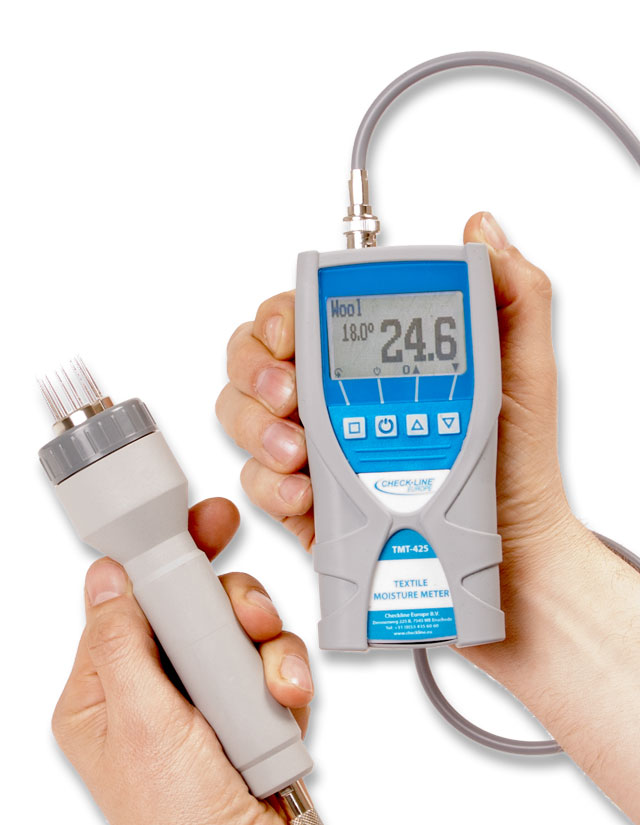The Ultimate Overview to Wetness Meters: A Comprehensive Summary and Exactly How They Can Save You Money
In the realm of building maintenance, construction, and various sectors, the relevance of precisely measuring moisture levels can not be overstated. Moisture meters serve as important tools in discovering and keeping track of moisture material in materials, aiding in avoiding expensive problems and making sure the top quality of items. Comprehending the nuances of different kinds of moisture meters, their applications, and the potential cost-saving benefits they supply can be a game-changer for services and professionals alike. Uncovering exactly how these devices can not only streamline processes yet likewise contribute to financial cost savings is a trip worth starting.
Sorts Of Moisture Meters
Different sorts of moisture meters are available for different applications in different markets. One usual kind is the pin-type moisture meter, which measures the electrical resistance in between 2 pins put into a material. This type appropriates for wood, drywall, and other building materials. Pinless wetness meters, on the various other hand, usage electro-magnetic sensor plates to scan a bigger area without causing damages to the material's surface area. Moisture Meter. These meters are suitable for quickly evaluating wetness degrees in huge areas such as floorings and wall surfaces.

Infrared dampness meters measure the thermal buildings of a material to establish its moisture material non-invasively, making them useful for applications where pin or pinless meters might not be ideal. Comprehending the various kinds of moisture meters offered can aid industries select the most proper tool for their particular dampness dimension needs.

Advantages of Using Wetness Meters
Moisture meters provide indispensable advantages in accurately keeping an eye on and analyzing dampness degrees in diverse materials and environments. One of the key benefits of making use of wetness meters is the avoidance of prospective damages triggered by excess moisture.
Furthermore, making use of dampness meters can result in increased power effectiveness. By identifying locations with high wetness levels, such as leakages or bad insulation, adjustments can be made to boost energy conservation and minimize utility prices. In agricultural settings, wetness meters play an important role in maximizing plant yields by making it possible for farmers to keep an eye on soil dampness levels and make educated watering decisions. Generally, the benefits of making use of wetness meters extend across numerous markets, providing cost-efficient options and advertising much better top quality control methods.
Just How to Choose the Right Dampness Meter
When selecting a wetness meter, it's vital to guarantee that the meter is suitable for the specific product you will be testing. Various products have varying electric properties that can influence wetness readings, so picking a meter created for your material is essential for accurate outcomes. By thoroughly assessing these variables, you can pick a wetness click to find out more meter that meets your demands and offers accurate dampness measurements for your projects.
Correct Methods for Wetness Meter Usage

Cost Savings Via Dampness Meter Applications
Just how can the critical utilization of moisture meters lead to substantial price savings across numerous markets? In the agriculture industry, wetness meters aid in determining the optimum time for harvesting plants, protecting against excess or over-drying wetness that can impact the last product's quality.
In a similar way, in building, moisture meters aid protect against expensive problems by detecting dampness levels in building products, such as wood or concrete, which can result in architectural problems otherwise dealt with quickly. By identifying problem areas beforehand, service providers can take restorative measures to stay clear of extensive repair services or substitutes, ultimately saving money and time.
In addition, in the food handling industry, moisture meters are necessary for monitoring product high quality and making sure conformity with safety and security regulations. By accurately measuring wetness material in foodstuff, suppliers can prevent putridity, keep quality, and lower waste, resulting in considerable price savings. In general, the critical application of dampness meters is a valuable investment that can result in considerable price reductions and improved effectiveness throughout numerous industries.
Final Thought
In conclusion, wetness meters are important tools for measuring and spotting moisture levels in various materials. By making use of the ideal wetness meter and following proper strategies, customers can properly prevent pricey problems triggered by excess moisture.
Dampness meters offer as vital tools in finding and keeping an eye on moisture content in products, assisting in avoiding costly problems and making certain the quality of items. Infrared moisture meters determine the thermal buildings of a material to establish its wetness content non-invasively, making them helpful for applications where pin or pinless meters may not be ideal.Moisture meters supply very useful advantages in accurately checking and assessing dampness levels in diverse materials and atmospheres. In farming setups, dampness meters play an essential function you could try this out in enhancing plant returns by allowing farmers to check dirt dampness degrees and make educated watering choices.In verdict, dampness meters are beneficial tools for determining and finding dampness degrees in numerous products.